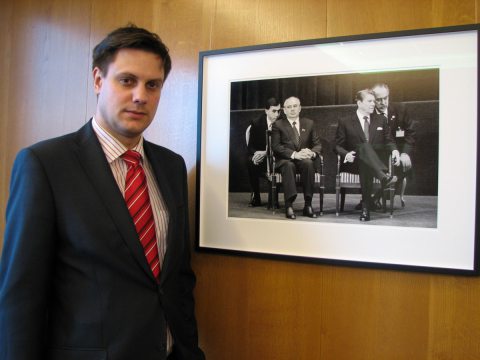While defendants are tortured in Belarus, there is no assurance that the guilty are punished
-

- Dmitry Utukin, member of the Committee against Torture (Russia)
As part of an urgent action by Amnesty International, representative of the Russian Committee against Torture and an Amnesty International member Dmitry Utukin signed a petition to the President of Belarus urging him to immediately declare a moratorium on executions with a view to abolish the death penalty in Belarus.
The appeal asks Aliaksandr Lukashenka to mitigate the verdict handed down on Siarhei Ivanou, who was sentenced to death on March 18.
“I believe that for a civilized country the death penalty is a stain on its reputation. The death penalty creates an atmosphere of violence, bloodlust and hate. Belarus is the only country in Europe where the death penalty is still used. And I urge the Belarusian authorities to declare a moratorium on the execution of the punishment with a view to completely abolish it in the future,” said Dmitry Utukin to the campaign “Human Rights Defenders against the Death Penalty in Belarus”.
As head of the Department of Investigation of the Committee against Torture, he stressed that, just like in many countries of the former Soviet Union, Belarus has failed to secure the quality of criminal investigations. “Human rights defenders working in this country have repeatedly said that defendants complain of torture. There is lack of public control over such a category of prisoners. We can never be completely sure that it is guilty person who is punished. In the case of a miscarriage of justice, those executed cannot be resurrected,” said the expert.
Calling for joining the campaign, Amnesty International reminds us that death sentences are often pronounced in Belarus as a result of unfair trials, which include the extraction of confessions under duress. In addition, the Human Rights Committee and others have found that the application of the death penalty in Belarus violates the human rights of those condemned and their families. In the case of Kovaleva and Kozyar v. Belarus, the UN Committee stressed among other things that “the complete secrecy surrounding the date of the execution and the place of burial, as well as the refusal to hand over the body for burial in accordance with the religious beliefs and practices of the executed prisoner’s family have the effect of intimidating or punishing the family by intentionally leaving it in a state of uncertainty and mental distress”.

